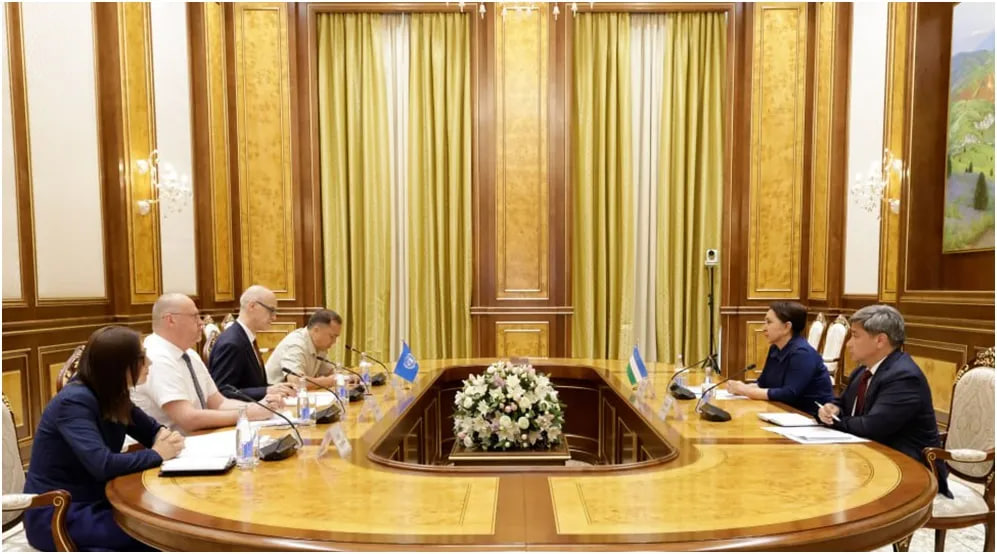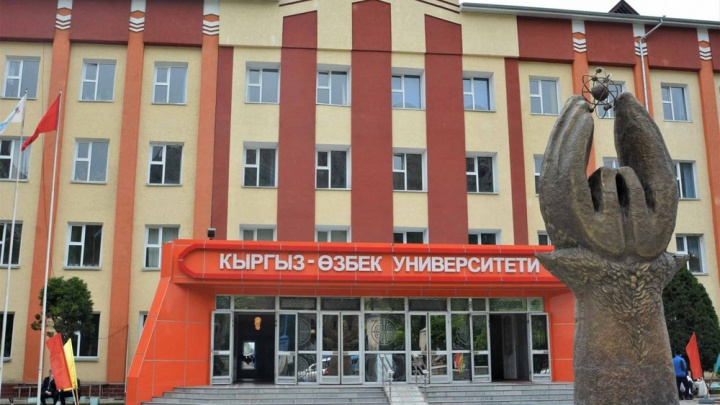Senate Chair Narbaeva and UNODC Rep discuss strengthening anti-trafficking and anti-corruption efforts
Senate Chairperson Tanzila Narbayeva held a meeting yesterday with Oliver Stolpe, Regional Representative of the United Nations Office on Drugs and Crime (UNODC) for Afghanistan, Central Asia, Pakistan, and Iran.

According to the press service of the upper house of parliament, the discussion focused on preparing a new cooperation roadmap for 2026–2030, reflecting the evolving global challenges.
During the meeting, the UNODC delegation commended the wide-ranging reforms underway in Uzbekistan under the leadership of President Shavkat Mirziyoyev, and reaffirmed the UN agency’s full support and readiness to provide comprehensive assistance in these efforts.
It was noted that combating human trafficking has been elevated to the level of state policy in Uzbekistan. The UNODC has played a significant role in supporting this process. The sides expressed confidence that UNODC’s global expertise in combating corruption, drug trafficking, and human trafficking would continue to strengthen Uzbekistan’s national mechanisms, bringing them in line with international standards.
Special attention was paid to the role of parliament in addressing corruption and human trafficking, which is helping to shape a strong, internationally recognized legal framework. It was emphasized that Uzbekistan’s experience in this area can serve as a model for the international community.
The two sides also acknowledged notable progress in Uzbekistan’s efforts to combat human trafficking and forced labor, as well as in investigating related crimes and holding perpetrators accountable. Improvements in protecting the rights of labor migrants were highlighted as a key factor behind Uzbekistan’s improving rankings in global indices.
In conclusion, the parties agreed to enhance cooperation in the use of modern information technologies for crime prevention, and to draft a new cooperation roadmap for 2026–2030, taking into account global trends such as digitalization, increasing labor migration, and other shared priorities.
Related News

16:25 / 02.08.2025
Senate sends official inquiry to Cabinet of Ministers over widespread illegal construction

19:38 / 01.08.2025
Senate approves law mandating medical screening for citizens who spend over 90 days abroad

18:46 / 31.07.2025
Uzbekistan to digitize 500 markets and service agencies to curb corruption

15:16 / 29.07.2025



